Is it O.K. to take a longer shower?
As Sydney and most of New South Wales is knee-deep in floodwater I had a friend ask me this morning, “is it OK to take a longer shower?”
I encouraged him and his entire family to take a longer shower over the next few days. Using the water may actually help those that are living downstream from Warragamba Dam where the residents and farmers are flooded by the water running over the dam spillway and overwhelming the Nepean and Hawkesbury river systems downstream.
Just over twelve months ago we were in the grip of a drought that was choking our country cousins and dust storms were commonplace across New South Wales.
The rain won’t last forever, in fact, it’s forecast to clear up this afternoon and deliver a 29° hot sunny day tomorrow.
The rain has exposed many blocked drains and stormwater pits and pipes. So when the sun comes out, make the most of the abundant water in our catchment dams and clean out those pits, grates, drains and the rainwater down pipes blocked with leaf debris.
World Plumbing Day 2021
Today is the 11th of March 2021 and it’s World Plumbing Day!
I just wanted to remind you that twelve months ago today, which was also World Plumbing Day, that we had a pandemic declared in Australia. While we’ve all had our lives changed over the last twelve months, the trees that you can see around me here are still growing in the drains in this house.
We have come back for our annual application of Vaporooter to STOP tree roots growing in the sewer pipes of this beautiful home.
Enjoy World Plumbing Day. Thank your local plumber, enjoy his company. Make him a cup of tea or coffee.

World Toilet Day 2020
Today is World Toilet Day 2020.
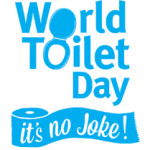
I’d like you to take a minute today and think about the Toilet. Imagine if you didn’t have one?
Spare a thought for the 4 billion people worldwide that don’t have access to a flushing toilet.
Its astounding BUT there are more people with a mobile telephone than a toilet and clean water to wash themselves.
Now, telling your workmates and classmates is a simple way to raise awareness of a sometimes very private subject.
Another way to help is stock up on toilet paper like Who Gives a Crap.
They donate half of their profits to improve sanitation for those less fortunate.
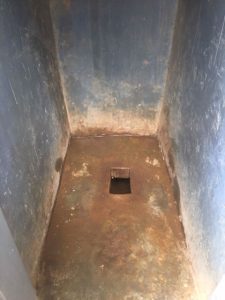
Woollahra Council trees are blocking my drains
Many of the blocked drains we attend to are caused by the trees that line the streets managed by Woollahra Council.
At street level, the trees’ canopy brings summer shade and all kinds of birdlife.
Contrary to belief, tree roots don’t go in search of water. They are stimulated as moisture levels, and the surrounding soil temperature reaches a point that is appealing to them.
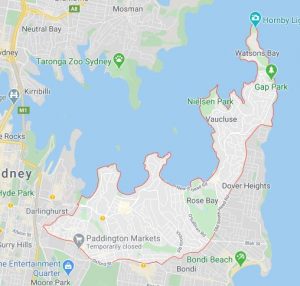
Sydney suburbs managed by Woollahra Council: Bellevue Hill, Darling Point, Double Bay, Edgecliff, Paddington, Point Piper, Rose Bay, Vaucluse
In most circumstances, the tree roots enter through leaking pipe joints and damage the sewer drains and stormwater pipes that take wastewater off your property. Many homeowners hold Woollahra Council responsible for their blockage and expect they will clear their blocked drains for free because the Council own the trees.
Well, in some cases they do!
But, Woollahra Council gets their income from you the ratepayer, and as you would expect, they have guidelines for spending ratepayers money to fix your blocked drains.
If you live in one of the suburbs managed by Woollahra Council, click here to see the Woollahra Council Wastewater Policy.
The top points are that you the homeowner:
Must have a sewer service diagram for your home.
Must maintain your sewer pipes.
Must prevent sewer blockages.
Must prevent sewerage from escaping into the environment.
May be entitled to the Council plumber clearing your blocked drain.
Waverley Council trees are blocking my drains
Did you know 85% of blocked drains are caused by tree roots?
In Waverley Council’s jurisdiction, blocked drains are cause quite often by the roots of the trees that line the streets.
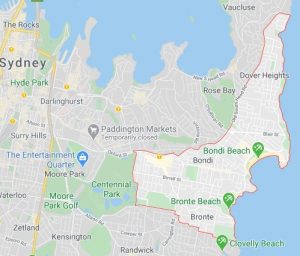
They can block drains and sometimes damage the sewer and stormwater pipes that take wastewater off your property.
Many homeowners hold Waverley Council responsible for their blockage and expect they will clear their blocked drains for free because they own the trees.
Well in some cases they do!
But, Waverley Council gets their income from you the ratepayer and as you would expect, they have guidelines for spending ratepayers money to fix your blocked drains.
If you have a Blocked drain and live in one of these suburbs managed by Waverley Council including Bondi, Bondi Beach, Bondi Junction, Bronte, Charing Cross, Clovelly, Dover Heights, North Bondi, Queens Park and Waverley, click here to see the Waverley Council Sewerage Stormwater Drain Blockage Policy.
The top points are that you the homeowner:
Must have a sewer service diagram for your building.
Must maintain your sewer pipes.
Must prevent sewer blockages.
Must prevent sewerage from escaping into the environment.
May be entitled to the Council plumber clearing your blocked drain.
Bathroom cleaning tip #2
We plumbers wash our hands 10 or more times a day.
The Coronavirus pandemic is making us all think about the transmission of germs and how the virus is transmitted on the surfaces we come in contact with. Any time we work in your bathroom we more than likely touch the hot and cold taps in your bath, shower or hand basin and the cold water tap to your toilet.
The tap supplying water to the toilet isn’t touched regularly, so, it has a reduced chance of transmission through touch. But, it is near the toilet so airborne germs are a concern.
The simple task of using the toilet and then wiping ourselves is something we all learned as kids, but, in researching this article I’m surprised to learn the number of different methods people use.
No matter how you do it, the first thing we all do is flush the toilet.
Before we wash our hands!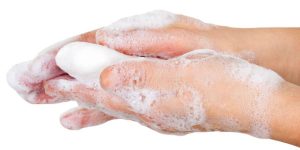
Alarm bells are ringing for you right now. As they should be!
But(t), let’s be practical.
Whether you have a plumber working in your bathroom or not, keep an atomiser spray bottle with a mix of water and disinfectant with an appropriate cleaning cloth in your bathroom. Spray the toilet flush button, the cistern lid, the toilet seat and lid and wipe them over thoroughly.
And if you’re keen to clean the entire bathroom, click here to see another of our easy cleaning tips.
Randwick Council trees are blocking my drains
Blocked drains are a large part of our workday; every day! And 85% of blocked drains are caused by tree roots. Our home is Coogee Randwick, in the eastern suburbs of Sydney Australia.
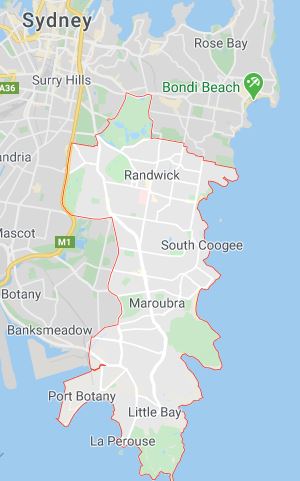
Tree-lined streets in Randwick Council are the reason for a lot of the blocked drains that we attend to. They damage the sewer drains and stormwater pipes that take wastewater off your property.
Many homeowners hold the council responsible for their blockage and have expectations that the council will clear their blocked drains for free because they own the trees.
Well in some cases they do.
But, Randwick Council gets their income from you the ratepayer and as you’d expect they have guidelines for spending ratepayers money to fix your blocked drains.
If you live in one of these Sydney suburbs managed by Randwick Council including Centennial Park, Chifley, Coogee, Kensington, Kingsford, Little Bay, Malabar, Maroubra, Matraville, Pagewood, Phillip Bay, Port Botany and Randwick, click here to see Randwick Council Sewerage Stormwater Drain Blockage Policy.
The top points are that you the homeowner:
- Must have a sewer service diagram for your home
- Must maintain your sewer pipes.
- Must prevent sewer blockages
- Must prevent sewerage from escaping into the environment
- Maybe entitled to the Council plumber clearing your blocked drain
Flushable wipes block drains
As you know, up to 85% of blocked drains are caused by tree roots and can be easily managed.
But, there is a growing number of blocked drains that are caused by “hygienic wipes”. Hygienic wipes block up house drains and sewer mains that cost homeowners and Sydney Water a fortune to maintain. So be careful what you flush!
To put it simply, hygienic wipes don’t break down like toilet paper and as many household pipelines have imperfections, the wipes get caught and cause a blocked drain.
If you are polishing your bottom….. and flushing more wipes, you could be in trouble.
This Choice magazine YouTube video shows how wipes don’t break down for up to 21 hours.
Don’t do this in the bathroom!
During our Coronavirus work schedule, I’ve found some fun hints and tips about plumbing and health that are worth sharing.
How germs spread:
- on your toothbrush,
- your toilet seat,
- and the toilet flush button, are just a few examples.
How is water connected to my toilet cistern?
Many modern toilets have a concealed cistern. That’s the tank that holds the water that flushes the loo. Now, they do look fantastic and they do save water.
The small dual flush buttons are the access panel for the internal workings of the cistern. When they need maintenance, the only way to repair them is through that access panel.
The water tap is usually built into the wall and this one couldn’t be replaced without cutting into the wall behind.
Cow gets stuck in sewer manhole
During a long career dealing with blocked drains we have seen some unusual things in the sewer, and this is one of them.
This 1:53sec YouTube clip shows a team of Chinese firefighters, police and vets rescue a cow that has fallen down a sewer maintenance hole.
The pregnant cow looks pretty uncomfortable as she is winched out of the manhole. But she ambles off into the night with her grateful owner as if nothing has happened.
Know your water heater #2
The hot water tempering valve
Knowledge about your water heater will save you money!
Second in the series, this 44-sec clip will show you a typical tempering valve on a gas water heater. That’s the blue valve on the side of the heater.
It should be checked by your plumber annually and replaced every five years.
The tempering valve is fitted to prevent scalding of the aged, the infirmed and young kids. It should be on every storage(and continuous) water heater like this.
If you are changing or upgrading your water heater, you should have a Tempering valve fitted.
Get into hot water this Winter!
With the winter season underway, its time to think about hot water.

Take 10 minutes to check on your water heater.
Is it gas or electric?
Check it’s location. Ensure that it’s not leaking on any of the pipes or connections.
Check the cold water control feed tap, usually on the bottom left of the heater. Make sure it turns off and back on.
If you have a storage tank, make sure you check the pressure relief valve is working correctly. And that it’s not leaking.
An efficient water heater will supply all the hot water your family will need this winter.
If you’re not sure, call me on 02 9664 4990!
The Lone Drainer and Pronto. Coronavirus Diaries Madrigal Communications
The Lone Drainer Coronavirus Diaries has been a chance to check in with small businesses to find out how they have been getting on during the Coronavirus lockdown of 2020.
In this clip, I speak with Tim Entwisle from Madrigal Communications.
Tim writes up tender documents for Aussie companies that are applying for large government contracts in the construction, energy and telecom sectors.
I’ve known Tim for about eight years. He’s a Rugby fanatic, an ocean swimmer, a wordsmith. Tim loves language, and he blogs about our language. He has written several blogs about Coronavirus.
Check them out on his website. https://madrigal.com.au/word-of-the-week-blog/
Know your water heater #1
Hi, its Dave Conroy here from The Lone Drainer and Pronto.
As we approach the winter of 2020, my message for today is about hot water.
You need to know how to turn off the water supply to your water heater.
And most importantly, I want you to know what a temperature and pressure relief valve is.
This 1min 48 sec YouTube clip will show you how it’s done on a 50-litre heater. Yours may be different. If you would like to know more……Call me!
